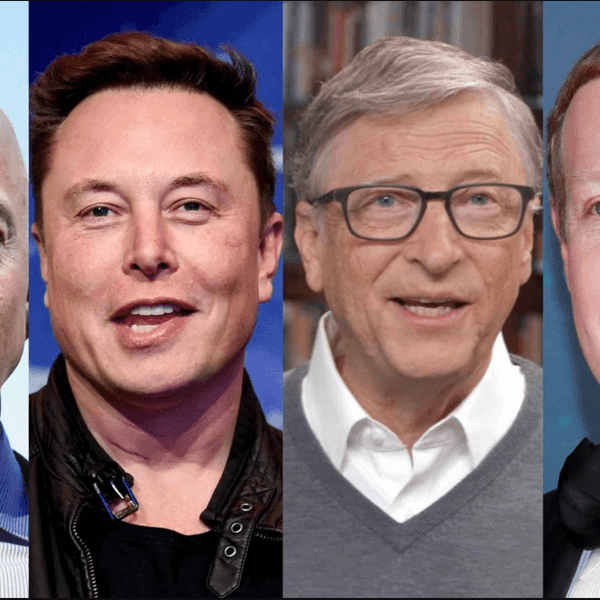From our school years forward, the Holy Keepers of the Corporate Order drum it into our little heads that — HALLELUJAH! — we Americans are blessed to live in a "free market" economy. Wow — let's all thank our lucky stars!
But what exactly is a free market?
Well, explain the mystics, it's an economy ruled by the invisible but immutable forces of supply and demand, thus allowing basics like prices and wages to be self-regulating in an open market of pure competition. Such an economy, we're informed, is free from distorting interventions by cartels, price fixers, supply manipulators, lawmakers and so forth. Uh-huh, and on what planet does this magic market actually exist? Not on Planet Earth, USA, where "free market" is just a rhetorical deceit that means corporate powers are free to lock down the market — which frees them to profit by stiffing consumers, workers, suppliers and others.
And they certainly have done all that. In the last 40 years or so, a handful of ever-bigger predators have squeezed out and bought out, merged and purged, conglomerated and integrated, undermined and overpowered so many economic interests that America the Free has devolved into a corporate confederacy of anti-competitive, profiteering combines. We consumers feel the slap in the face of this monopoly power when confronted with drug companies' price gouging, credit card giants' hidden fees and internet providers' rip-offs.
But it's not just a few errant industries. Whole segments of our economy and society have been plunged into the black hole of monopolization, affecting us from cradle to grave, literally: Three global conglomerates control 85 percent of U.S. baby formula; just two corporations make 82 percent of our coffins.
While the word "monopoly" technically means that a single person or corporation controls 100 percent of something, a broader concept of monopoly power is attained when a handful of players collectively control enough of a market to prevent real competition by setting prices and wages, manipulating supply, stifling innovations, etc. And that is what's squeezing our economy.
Essentially these are "shared monopolies" — generally defined as four or fewer entities controlling more than 40 percent of any given market. An astonishing level of this domineering force has already devoured our society's free-market pretensions, including many common products and industries presently locked down by four or fewer giants. For instance, 99 percent of drugstores are owned by Walgreens, Rite Aid, or CVS, and 42 percent of all U.S. beer sales are controlled by one entity: Anheuser-Busch InBev.
Corporatists and their apologists would have us believe that monopoly is the natural result of hearty competition, rewarding those firms that have superior economic ingenuity and efficiency. There is, of course, nothing natural about it. Monopolies don't happen, they're fabricated, and while the instigator is lust for profit, the methods for creating them are even more abject.
STEP 1: By hook or crook, amass enough power (financial, political, etc.) to gain market advantages over competitors.
STEP 2: Use those advantages to accrue "monopoly profits" to gain more financial and political power to squeeze out competitors.
STEP 3: Repeat.
The objective of monopoly, though, is not solely to eliminate market competition, but also to eradicate society's political power to restrain corporate greed. Rarely mentioned by media or political leaders, one major, insidious impact of monopoly is that it centralizes the geography of power: When monopolistic corporations take over a community's grocery store, a city's airport, a county's hospital, a rural area's farm machinery dealer, and so forth, decisions about everything from prices to business practices — and sometimes the businesses themselves — leave town.
Market concentration might seem an esoteric matter of concern only to academics and lawyers, until you realize that it relocates the center of decision-making away from a community's consumers, workers, environmentalists, officials, et al., to some faraway, profiteering CEO you've never heard of, who's never been to your town, and who (PR posturing aside) doesn't give a damn what local yokels think.
This intentional distancing of power beyond people's reach has now gone global, for more and more of the major corporations locking down U.S. markets are based abroad — in Brazil, Holland, South Korea, Taiwan, the U.K., Canada, France, etc. How are suppliers, customers and other hometown folks supposed to get the attention (much less influence the decisions) of such remote powers? Of course, that's the point: Whether they're ensconced in a corporate bastion in Delaware or Hong Kong ... you can't touch them.
However, as previous generations have done, we can organize and mobilize and rebel against this flagrantly anti-American, plutocratic concentration of power, and many good organizations are doing just that: fighting monopoly power at the local, state, national and global levels. One such group is the Institute for Local Self Reliance, which fights the fight at the local level. Learn more at: https://ilsr.org.
To find out more about Jim Hightower and read features by other Creators Syndicate writers and cartoonists, visit the Creators webpage at www.creators.com.










